#Mikhail Kutuzov
Text

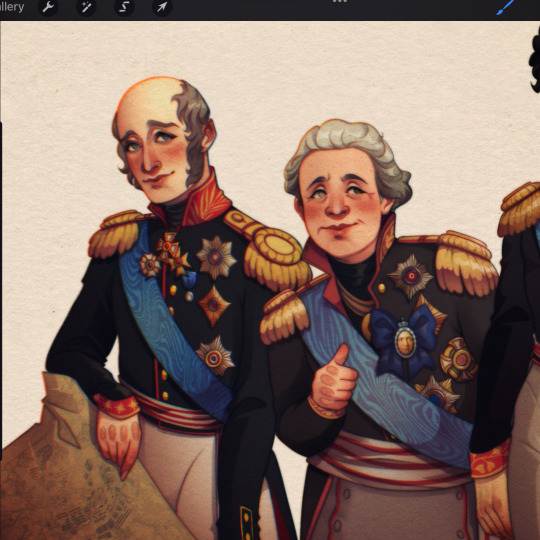
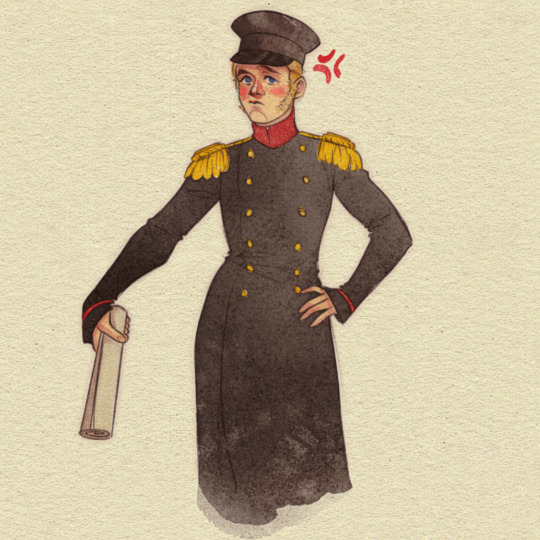
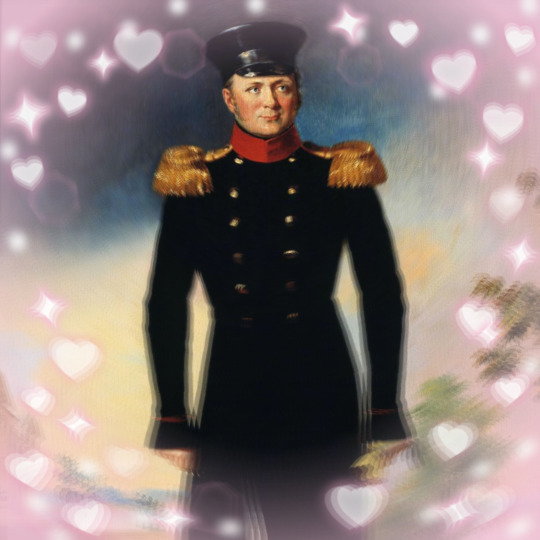
Whaaaaaaaaa??? Who are these guysss?? and what’s up with the tight pants?😨
This was so much fun to draw! 💗Though, their medals and ornaments made it kinda tedious. They’re just soo many, they look like Christmas trees! 🥲🎄I only now realised, as I’m writing this, that I forgot to draw feathers for Sasha’s hat omgggg nooo 😣
I hope everyone’s doing well! 🥰😘👏💖
#pyotr bagration#alexander i of russia#mikhail miloradovich#barclay de tolly#mikhail kutuzov#napoleonic era#digital art#I love old men 😘
134 notes
·
View notes
Text
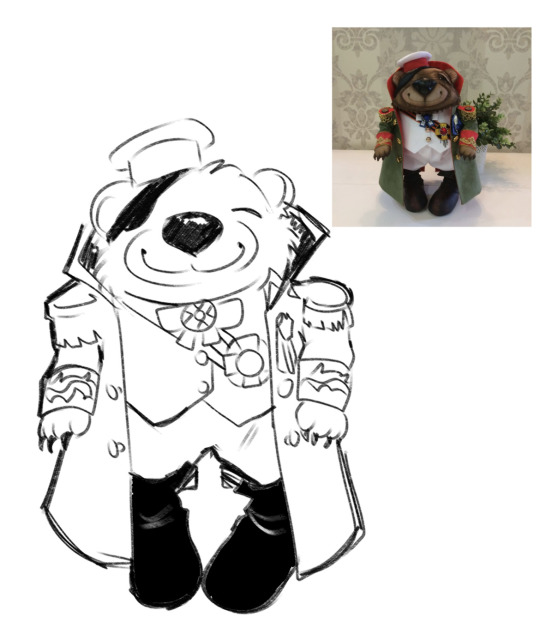
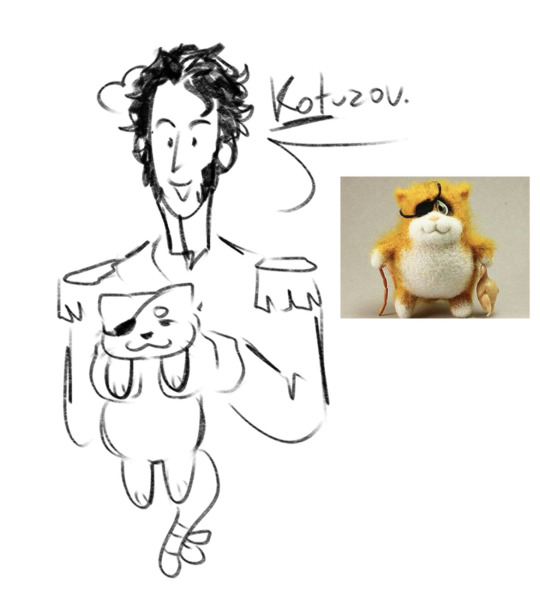
doodled these two general Kutuzov plushies i found while browsing (boredom)
#kutuzov#russian empire#silly#mikhail kutuzov#Михаил Кутузов#кутузов#napoleonic wars#sketch#napoleonic#pyotr bagration#багратион
55 notes
·
View notes
Text

#napoleonic era#napoleonic wars#alexander suvorov#matvei platov#alexander i of russia#alexander i#pyotr bagration#mikhail miloradovich#michael barclay de tolly#mikhail kutuzov#fanart#my art
50 notes
·
View notes
Text
The Battle of Borodino on 26 August 1812 by Peter von Hess
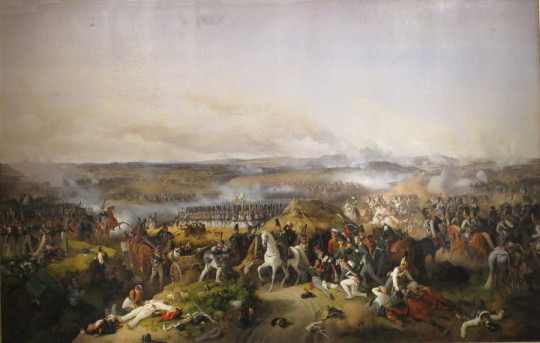
The Battle of Borodino took place near the village of Borodino on 7 September (O.S. 26 August) 1812 during Napoleon's invasion of Russia. The Grande Armée won the battle against the Imperial Russian Army, but failed to gain a decisive victory and suffered tremendous losses. Napoleon fought against General Mikhail Kutuzov, whom the Emperor Alexander I of Russia had appointed to replace Barclay de Tolly on 29 August (O.S. 17 August) 1812 after the Battle of Smolensk. After the Battle of Borodino, Napoleon remained on the battlefield with his army; the Imperial Russian forces retreated in an orderly fashion southwards. Because the Imperial Russian army had severely weakened the Grande Armée, they allowed the French occupation of Moscow, using the city as bait to trap Napoleon and his men. The failure of the Grande Armée to completely destroy the Imperial Russian army, in particular Napoleon's reluctance to deploy his Imperial Guard, has been widely criticised by historians as a huge blunder, as it allowed the Imperial Russian army to continue its retreat into territory increasingly hostile to the French. Approximately a quarter of a million soldiers were involved in the battle, and it was the bloodiest single day of the Napoleonic Wars.
Although the Battle of Borodino is classified as a victory for Napoleon since he and his men managed to capture Moscow, the fierce defense of the Imperial Russian Army devastated the Grande Armée to such an extent that it caused France and its army to become militarily impuissant. Also, the city was actually used as bait to lure and trap the French forces. When Napoleon and his men visited the city, he found that it was burnt and abandoned upon his arrival. While Napoleon was in Moscow, he sent a letter to the tsar who was residing in Saint Petersburg demanding that he surrender and accept defeat. Napoleon received no response. Whilst patiently waiting for an answer from the tsar, as soon as the cold winter and snowfall started to form, Napoleon, realizing what was happening, attempted to escape the country with his men. Seeing that they were fleeing, the Imperial Russian army launched a massive attack on the French. Attrition warfare was used by Kutuzov by burning Moscow's resources, guerrilla warfare by the Cossacks against any kind of transport and total war by the peasants against foraging. This kind of warfare weakened the French army at its most vulnerable point: logistics, as it was unable to pillage Russian land, which was insufficiently populated nor cultivated, meaning that starvation became the most dangerous enemy long before the cold joined in. The feeding of horses by supply trains was extremely difficult, as a ration for a horse weighs about ten times as much as one for a man. It was tried in vain to feed and water all the horses by foraging expeditions. Of the more than 600,000 soldiers who invaded the Russian Empire, fewer than 100,000 returned.
Sources. The Battle of Borodino, from Wikipedia, the free encyclopedia
youtube
#Отечественная война 1812 года#War of 1812#Художник#Начинающий художник#famous artists#Эрмитаж#Hermitage Museum#Russian Empire#Российская империя#История России#Наполеон#Napoleon Bonaparte#Наполеоновские войны#Михаил Кутузов#Mikhail Kutuzov#Peter von Hess#theintexp#Youtube
8 notes
·
View notes
Text

i caved
[ ID: Two uncoloured, sketchy panels of what looks like a comic. In the first, Mikhail Kutuzov wraps his arm around Andrei Bolkonsky's shoulder, telling him, "It is pride month, Andrei. You know what that means". Andrei looks worried and says, "Huh", "What". In the second, Kutuzov faces away from Andrei as he appears to be walking away with a smile. Andrei is very small in the background and he exclaims, "Do you want us to kill like," "The gay French", "What", as a group of hussars in the background are marching happily somewhere. END ID ]
#war and peace#whale's fall#mikhail kutuzov#andrei bolkonsky#gay meth. caved#i want nothing more to go back to sleep but#but do you want us to like kill the gay french#yknow ?
22 notes
·
View notes
Text
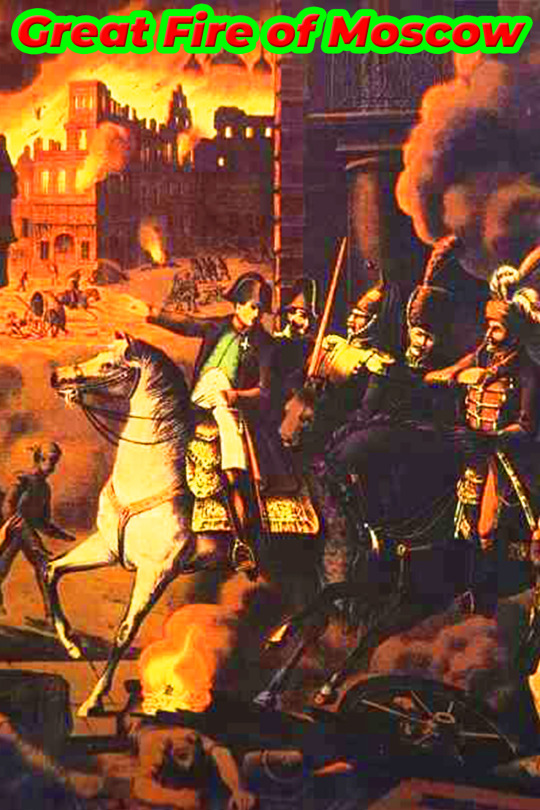
It's September 14th. On this day in 1812, the Great Fire of Moscow began. The Muscovites evacuated the city and set it ablaze to impede its capture by the approaching Napoléon Bonaparte’s Grande Armée and turn the French Emperor’s anticipated glorious victory into a hollow one. The fire burned for five days and reduced 3/4 of Moscow's buildings to ashes.
Earlier in the year, Napoléon launched his invasion of Russia with 400,000 to 450,000 men. He used scorched-earth tactics to frighten the Russians into submission, but the Russians weren't intimidated. Battles and skirmishes had whittled the Grande Armée down to 108,000 men by the time they entered Moscow on this day. The French cavalry had been nearly wiped out.
Napoléon waited in Moscow for a peace offer from Tsar Alexander I. After five weeks, Napoléon and his Grande Armée finally left Moscow – with no peace offer, no food, little ammunition, and few weapons and supplies. The French military position collapsed as the Grande Armée struggled on toward further disaster. With horses exhausted or dead, commanders redirected cavalrymen into infantry units, leaving French forces helpless against Cossack fighters. The Russians were able to easily force the Grande Armée to retreat along the same route they had earlier scorched. The French were forced to eat their remaining horses to survive. Napoléon himself made it back to France, but little of his Grande Armée did. Napoléon's final defeat came three years later at Waterloo. ☮️ Peace… Jamiese of Pixoplanet
#russia#moscow#fire#war#napoleon#bonaparte#napoleon bonaparte#kutuzov#mikhail kutuzov#borodino#tolstoy#leo tolstoy#war and peace#sergei bondarchuk#ludmila savelyeva#vyacheslav tikhonov#Сергей Бондарчук#Людмила Савельева#Вячесла́в Ти́хонов#waterloo#grande armée#france#francia#french history#guemes#histoire de france#russian history#military history#jamiese#pixoplanet
1 note
·
View note
Text
Pan-Turkism has been characterized by pseudoscientific theories known as Pseudo-Turkology.[64][65] Though dismissed in serious scholarship, scholars promoting such theories, often known as Pseudo-Turkologists,[64] have in recent times emerged among every Turkic nationality.[66][67] A leading light among them is Murad Adzhi, who insists that two hundred thousand years ago, "an advanced people of Turkic blood" were living in the Altai Mountains. These tall and blonde Turks are supposed to have founded the world's first state, Idel-Ural, 35,000 years ago, and to have migrated as far as the Americas.[66]
According to theories like the Turkish History Thesis, promoted by pseudo-scholars, the Turkic peoples are supposed to have migrated from Central Asia to the Middle East in the Neolithic. The Hittites, Sumerians, Babylonians, and ancient Egyptians are here classified as being of Turkic origin.[65][66][67][68] The Kurgan cultures of the early Bronze Age up to more recent times are also typically ascribed to Turkic peoples by pan-Turkic pseudoscholars, such as Ismail Miziev.[69] Non-Turkic peoples typically classified as Turkic, Turkish, Proto-Turkish or Turanian include Huns, Scythians, Sakas, Cimmerians, Medes, Parthians, Pannonian Avars, Caucasian Albanians, and various ethnic minorities in Turkic countries, such as Kurds.[69][70][71][67][68] Adzhi also considers Alans, Goths, Burgundians, Saxons, Alemanni, Angles, Lombards, and many Russians as Turks.[66] Only a few prominent peoples in history, such as Jews, Chinese people, Armenians, Greeks, Persians, and Scandinavians are considered non-Turkic by Adzhi.[66]
Philologist Mirfatyh Zakiev, former Chairman of the Supreme Soviet of the Tatar ASSR, has published hundreds of "scientific" works on the subject, suggesting Turkic origins of the Sumerian, Greek, Icelandic, Etruscan and Minoan languages. Zakiev contends that "proto-Turkish is the starting point of the Indo-European languages".[66] Not only peoples and cultures, but also prominent individuals, such as Saint George, Peter the Great, Mikhail Kutuzov and Fyodor Dostoevsky, are proclaimed to have been "of Turkic origin".[66] As such the Turkic peoples are supposed to have once been the "benevolent conquerors" of the peoples of most of Eurasia, who thus owe them "a huge cultural debt".[66][72]
The pseudoscientific Sun Language Theory states that all human languages are descendants of a proto-Turkic language and was developed by the Turkish president Mustafa Kemal Atatürk during the 1930s.[73] Kairat Zakiryanov considers the Japanese and Kazakhgene pools to be identical.[74] Several Turkish academics (Şevket Koçsoy, Özkan İzgi, Emel Esin) claim that Zhou dynasty were of Turkic origins.[75][76][77][78]
what is going on with the turkish
341 notes
·
View notes
Photo

Mikhail Kutuzov & the Russian Military Enlightenment
The Military Enlightenment of the 18th century was a concerted effort across Europe to engage with the science of war. Embracing rationalism and professionalism, especially in military education, statesmen, philosophers, and educators explored the relationship between the military and civilian spheres. Leading figures in Russia included Ivan Betskoi (1704-1795) and Mikhail Illarionovich Golenishchev-Kutuzov (1745-1813).
Learn more about Mikhail Kutuzov & the Russian Military Enlightenment
41 notes
·
View notes
Text
Mikhail Kutuzov and Venom Snake: unlikely fellows on the list of “guys who really should not have gone to war with a brain injury that large”
alternately "guys whose tactical skill was noticeably improved by getting shot in the fucking head"
#posts with an audience in the single digits#gonna plot the correlation of head injury to battlefield success#philip ii did it. horatio nelson did it. hannibal didn't really he just got an infection#saladin's uncle and the guy who founded the mamluk empire were both half-blind but i don't think that was a head injury per se
27 notes
·
View notes
Text
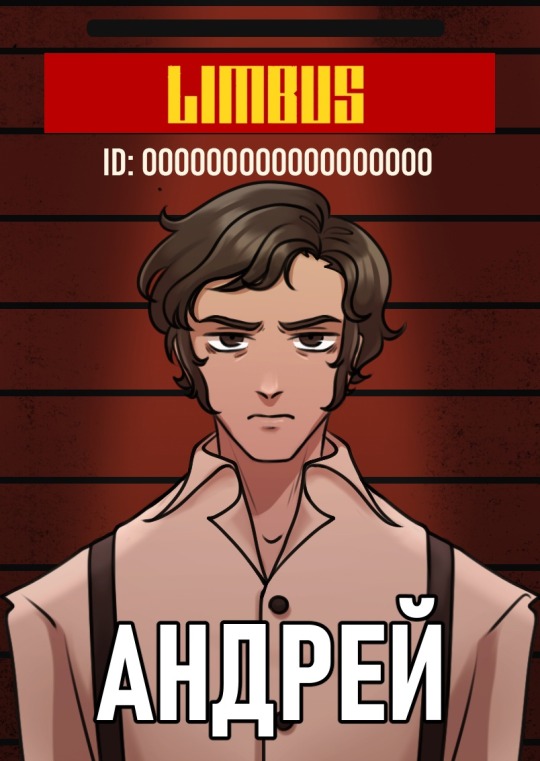
Name: Andrei Nikolayevich Bolkonsky
Weapon name: Austerlitz
EGO: The same oak tree
Details: Delusions of grandeur, Hatred of society
Age: 32
Height: 185 cm
Marital Status: widower
Biography: Andrew was born into the family of Colour Fixer - Emerald Crone. From his early childhood, the boy, along with his sister Marya, was raised only by a strict but loving father, as his mother died shortly after his birth. He grew up to be a noble and respectable young man. He does not usually go out in public, as he dislikes people for their hypocrisy and emptiness, but for the sake of his pregnant wife Liza he comes to various meetings, at one of which he meets Pierre Bezukhov - he had not long ago moved away and, like Bolkonsky, was fascinated by the activities of one of high-ranking Fixer Napoleon. Deciding that he wanted a break from his tiresome family life, he applied for service in a subsidiary Office, opposing the one Napoleon was in. Seriously wounded, he is taken to an enemy hospital, but he still manages to return home. There he catches his wife's difficult labour, during which she dies before Andrei's eyes and he is left to bring up his son Nikolenka alone, with the help of his father and Marya. For several years he lives away from society and builds up a bond with Pierre, finally softening up and coming out in public. At one of the meetings he meets Natasha Rostova and falls in love with her, but asks for the sake of his father to wait for a decision on marriage for some time. The girl can not stand the wait and gets involved in an affair with Kuragin, for which Andrei breaks off the engagement and goes to the company Limbus.
Character: Andrei is honest, decent, brave, responsible and noble man, but he is also not without a lot of minuses. Even among the team, he is known for his selfishness and arrogance, which are still downplayed if his colleagues really need help. Also, his connection with others is hindered by his tendency to introspect and his love of being alone - he often hovers in the clouds and tries to be away from various "gatherings". Nevertheless, some have still managed to find common ground with him and become great friends, for which he interacts with them much more gently in return.
Facts:
-His wife Lisa was the niece of Mikhail Kutuzov, the head of the subsidiary Office.
-The oak tree that stands in the backyard of the Bolkonsky home is displayed on their family emblem.
-He always carries a pocket watch with the family emblem and a picture of the family.
-His father was a participant in the attempted attacks on one of the filial of the Lobotomy Corporation for valuable data, so he wants to find this place and try to save the remaining employees there.
-Source: Leo Tolstoy - "War and Peace"
10 notes
·
View notes
Photo
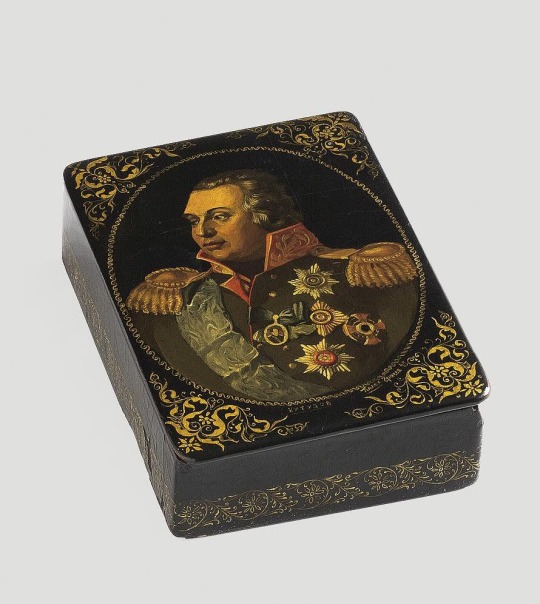
Box with a portrait of Mikhail Kutuzov, 1943.
24 notes
·
View notes
Text
1974-Georgy Zhukov

Georgy Konstantinovich Zhukov (Russian: Георгий Константинович Жуков; 1 December 1896 – 18 June 1974) was a Marshal of the Soviet Union. He also served as Chief of the General Staff, Minister of Defence, and was a member of the Presidium of the Communist Party (later Politburo). During World War II, Zhukov oversaw some of the Red Army's most decisive victories.
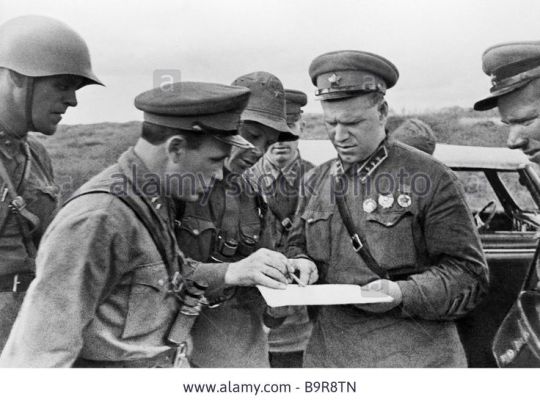


He served in the Red Army during the Russian Civil War. Gradually rising through the ranks, by 1939 Zhukov had been given command of an army group and won a decisive battle over Japanese forces at Khalkhin Gol, for which he won the first of his four Hero of the Soviet Union awards. In February 1941, Zhukov was appointed as chief of the Red Army's General Staff.

In 1945, Zhukov commanded the 1st Belorussian Front; he took part in the Vistula–Oder Offensive, and the Battle of Berlin, which resulted in the defeat of Nazi Germany, and the end of the war in Europe. In recognition of Zhukov's role in the war, he was chosen to accept the German Instrument of Surrender, and inspect the Moscow Victory Parade of 1945.

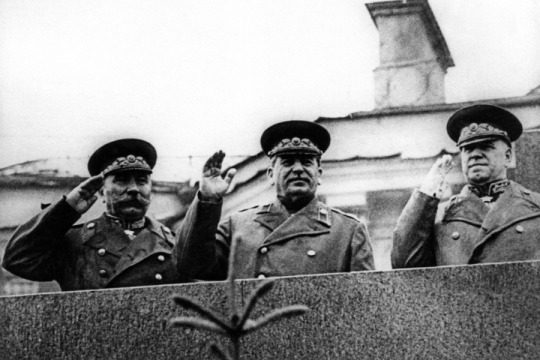

After the war, Zhukov's success and popularity caused Joseph Stalin to see him as a potential threat.[1] Stalin stripped him of his positions and relegated him to military commands of little strategic significance. After Stalin's death in 1953, Zhukov supported Nikita Khrushchev's bid for Soviet leadership. In 1955, he was appointed as Defence Minister and made a member of the Presidium.

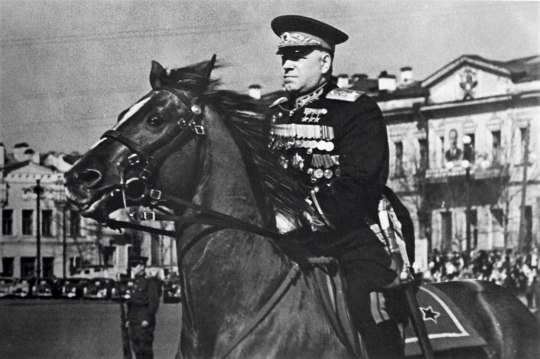

In 1957, Zhukov lost favour again and was forced to retire. He never returned to a position of influence and died in 1974. Zhukov is remembered as one of the greatest Russian and Soviet military leaders of all time, along with Alexander Suvorov and Mikhail Kutuzov.
8 notes
·
View notes
Text
Functions in Socionics — Introverted Intuition
Introverted Intuition according to Aushra Augustinavichiute
All processes occur in time, which means they have roots in the past and continue into the future. Time is a relation between events occurring in sequence. This aspect of perception provides information about the sequence of events and people’s actions, their causal interdependence, and people’s own feelings that are caused by this interdependence.
One perceives direct outside information that is obtained through the first signal system as feelings about the future, the past and the present. Examples include a sense of haste, calmness or fervor; a sense of something being timely or premature; a sense of whether the pace of life is proper or improper; a sense of future danger or safety; a sense of anticipation; a fear of being late; a feeling of knowing what will happen in the future; an anxiety about what is to come; etc. One has some sense of time at any moment of one’s life. It is impossible to live outside of time or lack any feelings towards it. Therefore a certain sense of time is an integral part of one’s spiritual state at any given moment. This aspect of perception determines one’s ability or inability to predict the future and plan for it, to avoid possible problems and erroneous actions, and to learn from past experience.
When this aspect of perception is in the leading position, the individual has strategic abilities and knows how to choose an optimal moment for a particular activity. For example, giving battle when it is necessary and avoiding it when it is a better course of action, just like Mikhail Kutuzov always did.
Interaction in time could be called an ability to avoid collisions with objects, thereby avoiding their reflection in oneself.
Introverted Intuition according to WSS
Aspect: Visualised Trends: Events occur and reoccur throughout time in certain patterns or trends which can be noticed and picked out via abstraction and reflection. The strength of these trends point to eventual outcomes that are of greater salience and meaning than the noise of many other situations, and can be picked out as consequences to reach towards or to avoid.
Metabolism: The individual carefully reflects on past events, considering what has happened before and noticing salient trends. Mentally following the path of these trends, they visualise outcomes that are likely to happen and what would ensure or offset routes toward these outcomes. Picking out particular outcomes of importance limits the range of possible instances to those that are probably going to happen, allowing one to plan a path to follow in the long-term.
Strength: The person possesses a capacity for deep thought and reflection on the meaning behind mundane events. With great insight, they can think ahead and predict what will likely come to pass from daily actions, understanding from little concrete data the consequences of what we do. They will have a good idea of how to avoid probable future mishaps, while also being confident in where their life is heading and how to align their actions with a particular path or plan of importance.
Value: The person wishes to narrow the scope of possibilities in their lives to the few most important, wanting to form a clear path to follow in life with an outcome meaningful to them. They will want to carefully make decisions on their future, not wishing to turn back from the plan they have committed to. Distractions will be cut out, the daily lifestyle being pruned to fall in line with the path without distraction. They will also recognise the importance of the past, remembering previous instances to inform future actions.
Introverted Intuition according to SHS
Imagination, memories, predictions; suggestion, hypnosis, visions, symbolism; reflection, premonitions, omens; nervous system.
Intellectually: The T-state at the intellectual level forms the most abstract type of thinking, which reflects the global processes found in the external world and which are caused by time. The law of entropy–the steady shift from more organised life forms to more chaotic simple ones–is at the heart of T-thinking. Birth, becoming, death, and rebirth in other forms–this kind of information is being processed in the human brain while in this state. If in the I-state a person obtains knowledge from within themselves, from their subconscious psychic layers, then in the T-state information comes from outside–from the “Cosmos.” Intuition of time thinking occurs through dynamic visual forms. Eyes go up and flutter a little, as if trying to follow the movement of the perceived image.
Socially: A stable expression of the T-state in a society leads to the informal role of a “mirror.” In the T-state, a person can predict the entire socio-psychological dynamic of a team. A person turns into a sensitive sensor of any changes within a team. Like a drop of water, the person reflects all the bad and good that was, is and will be in this group of people. In the T-state, a person combines within two contradictory roles of being a “prophet,” and at the same time being a victim who will be blamed for the group’s failures.
Psychologically: The T-state is experienced as feeling victimised (or sacrificed). This state is the most religiously colored, as it desires freedom from everything earthly and carnal, anything that binds the spirit. In the T-state, a person is drawn to the mysterious, otherworldly, and transcendental. In its extreme expression, the T-state leads to hallucinations, the appearance of various mystical visions. A person with a persistent T-state is most susceptible to hypnosis. Another manifestation of the intuition of time is feeling vulnerable to fate, lacking free will, existing at the behest of higher powers.
Physically: One of the most important signs of a T-state is the loss of body sensations. In the T-state, a person feels neither pain nor carnal pleasure. The lifelessness of the body manifests itself in its fragility, paleness, and inner emptiness. The T-state is expressed through posture of humility: hunched shoulders, retracted or, conversely, elongated neck, tilted or raised head, general bending of the body. The movements in this state are uniformly slow and smooth. It feels like a waking dream. The eyes of a person in the T-state are very sad, they seem to reflect dim and mysterious “moonlight.”
Source: PDB Wiki
4 notes
·
View notes
Text
The Battle of the Berezina on 29 November 1812 by Peter von Hess

The Battle of (the) Berezina (or Beresina) took place from 26 to 29 November 1812, between Napoleon's Grande Armée and the Imperial Russian Army under Field Marshal Wittgenstein and Admiral Chichagov. Napoleon was retreating back toward Poland in chaos after the aborted occupation of Moscow and trying to cross the Berezina River at Borisov. The outcome of the battle was inconclusive as, despite heavy losses, Napoleon managed to cross the river and continue his retreat with the surviving remnants of his army.
The immediate result of the Battle of Berezina had been simple: the French retreat went on, the Russian Army followed. Although it had been a Russian tactical victory by definition as the losses of the "defeated" outweighed those of the "victor", the victorious Russian force failed to meet its original objectives. Indeed, despite enormous losses, Napoleon was in a position to claim a strategic victory, having snatched what was left of his army from a seemingly unavoidable catastrophe. There would be no large military confrontation for the rest of the retreat, although the incessant harassment of Russian Cossacks and the weather continued to take a toll on the surviving members of the French army.
The losses had been extraordinary. It is estimated that 20–30,000 French combatants became casualties. "To the number of the slain in action must be added probably as many as 30,000 non-combatants." The Guard, which had not come into action at all, lost about 1,500 men out of 3,500. Much, however, had been saved. Napoleon, his generals, 200 guns, the war chest, much of the baggage, and thousands of officers and veteran soldiers had escaped. Overall, approximately 40,000 members of Napoleon's army were saved. Without this core of experienced men, Napoleon could not have rebuilt his armies for the battles of the War of the Sixth Coalition.
According to author Andrew Zamoyski: The next two days were, according to some, among the worst of the entire retreat[...]no fallen horse or cattle remained uneaten, no dog, no cat, no carrion, nor indeed, the corpses of those who died of cold and hunger.
Napoleon left his army on 5 December at Vilna. The temperatures dropped to -33.75 °C on 8 December and the number of combatants was down to 4,300. On 14 December the rest of the French main army crossed the Niemen. 36,000 French prisoners of the Grande Armée were taken by the Cossacks between 1–14 December. The only troops that had remained were the flanking forces (43,000 under Schwarzenberg, 23,000 under Macdonald), about 1,000 men of the Guard and about 40,000 stragglers. No more than 110,000 were all that was left from 612,000 (including reinforcements) that had entered Russia. The Russian losses may be about 250,000 men. Louise Fusil, a French actress, who was living in Russia for six years, returned with the army and offers details in her memoires. In French historiography, Berezina is later associated with disaster.
Sources. French invasion of Russia, The Battle of the Berezina, from Wikipedia, the free encyclopedia
youtube
#Отечественная война 1812 года#War of 1812#Художник#Начинающий художник#famous artists#Эрмитаж#Hermitage Museum#Russian Empire#Российская империя#История России#Наполеон#Napoleon Bonaparte#Наполеоновские войны#Михаил Кутузов#Mikhail Kutuzov#Peter von Hess#theintexp#Youtube
4 notes
·
View notes
Text
Every Russian knows him purely by his patronym. He was the general who triumphed over Napoleon's Grande Armée during the Patriotic War of 1812, not merely restoring national pride but securing national identity. Many Russians consider Field Marshal Mikhail Illarionovich Golenischev-Kutuzov the greatest figure of the 19th century, ahead of Pushkin, Tchaikovsky, even Tolstoy himself. Immediately after his death in 1813, Kutuzov's remains were hurried into the pantheon of heroes. Statues of him rose up across the Russian empire and later the Soviet Union. Over the course of decades and centuries he hardened into legend.
As award-winning author Alexander Mikaberidze shows in Kutuzov: A Life in War and Peace (Oxford UP, 2022), Kutuzov's story is far more compelling and complex than the myths that have encased him. An unabashed imperialist who rose in the ranks through his victories over the Turks and the Poles, Kutuzov was also a realist and a skeptic about military power. When the Russians and their allies were routed by the French at Austerlitz he was openly appalled by the incompetence of leadership and the sheer waste of life. Over his long career--marked equally by victory and defeat, embrace and ostracism--he grew to despise those whose concept of war had devolved to mindless attack.
Here, at last, is Kutuzov as he really was--a master and survivor of intrigue, moving in and out of royal favor, committed to the welfare of those under his command, and an innovative strategist. When, reluctantly and at the 11th hour, Czar Alexander I called upon him to lead the fight against Napoleon's invading army, Kutuzov accomplished what needed to be done not by a heroic charge but by a strategic retreat. Across the generations, portraits of Kutuzov have ranged from hagiography to dismissal, with Tolstoy's portrait of him in War and Peace perhaps the most indelible of all. This immersive biography returns a touchstone figure in Russian history to human scale.
1 note
·
View note
Photo
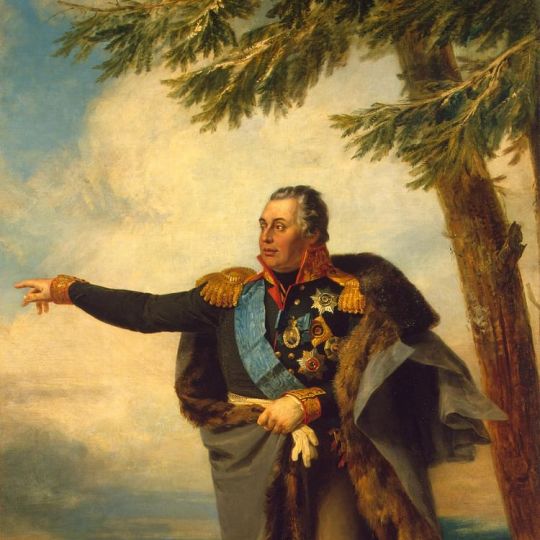
Mikhail Kutuzov y la Ilustración militar rusa
La Ilustración militar del siglo XVIII supuso un esfuerzo concertado en toda Europa para abordar la ciencia de la guerra. Abrazando el racionalismo y el profesionalismo, especialmente en la educación militar, estadistas, filósofos y educadores exploraron la relación entre las esferas militar y civil. Entre las figuras más destacadas de Rusia se encuentran Ivan Betskoi (1704-1795) y Mikhail Illarionovich Golenishchev-Kutuzov (1745-1813).
Leer más...
0 notes